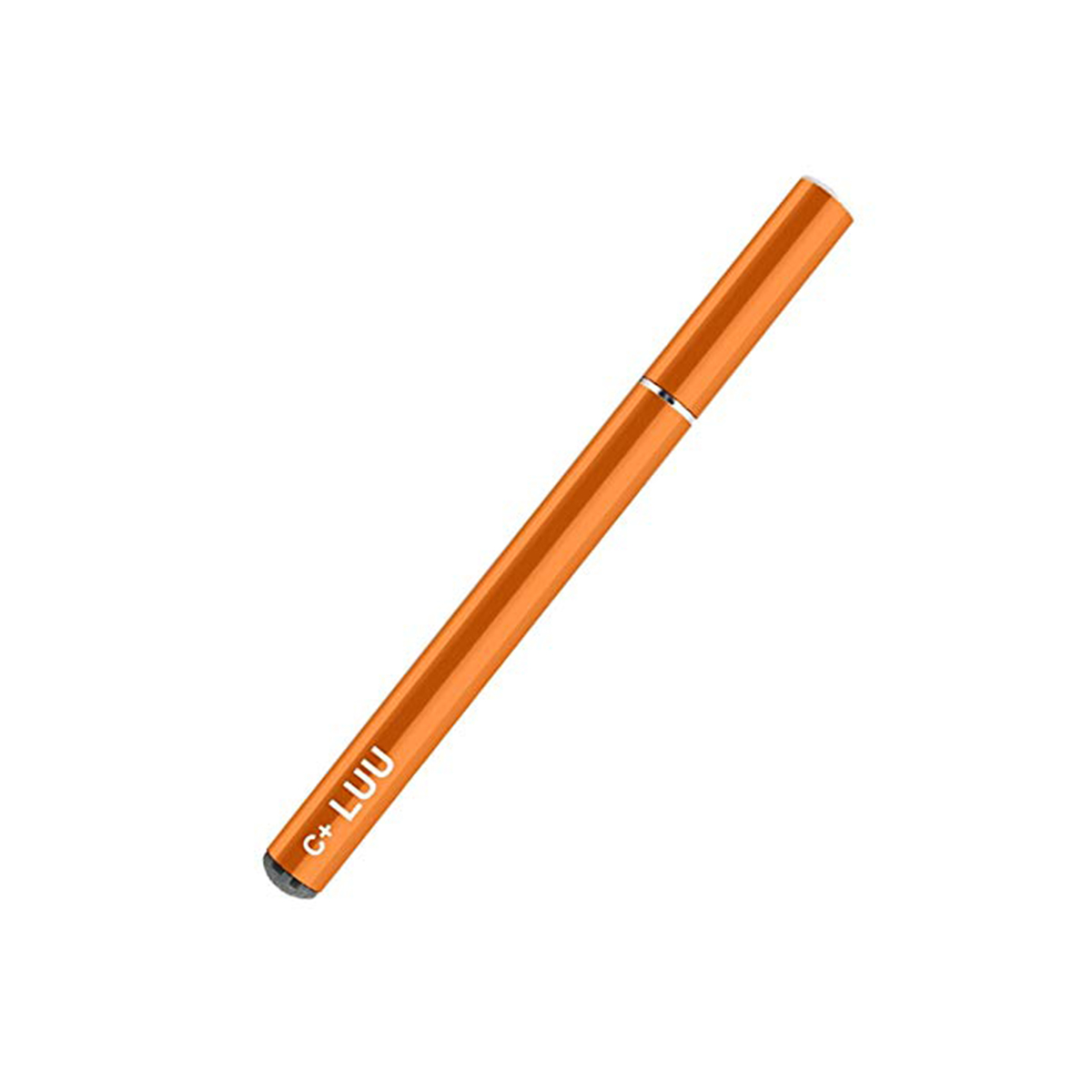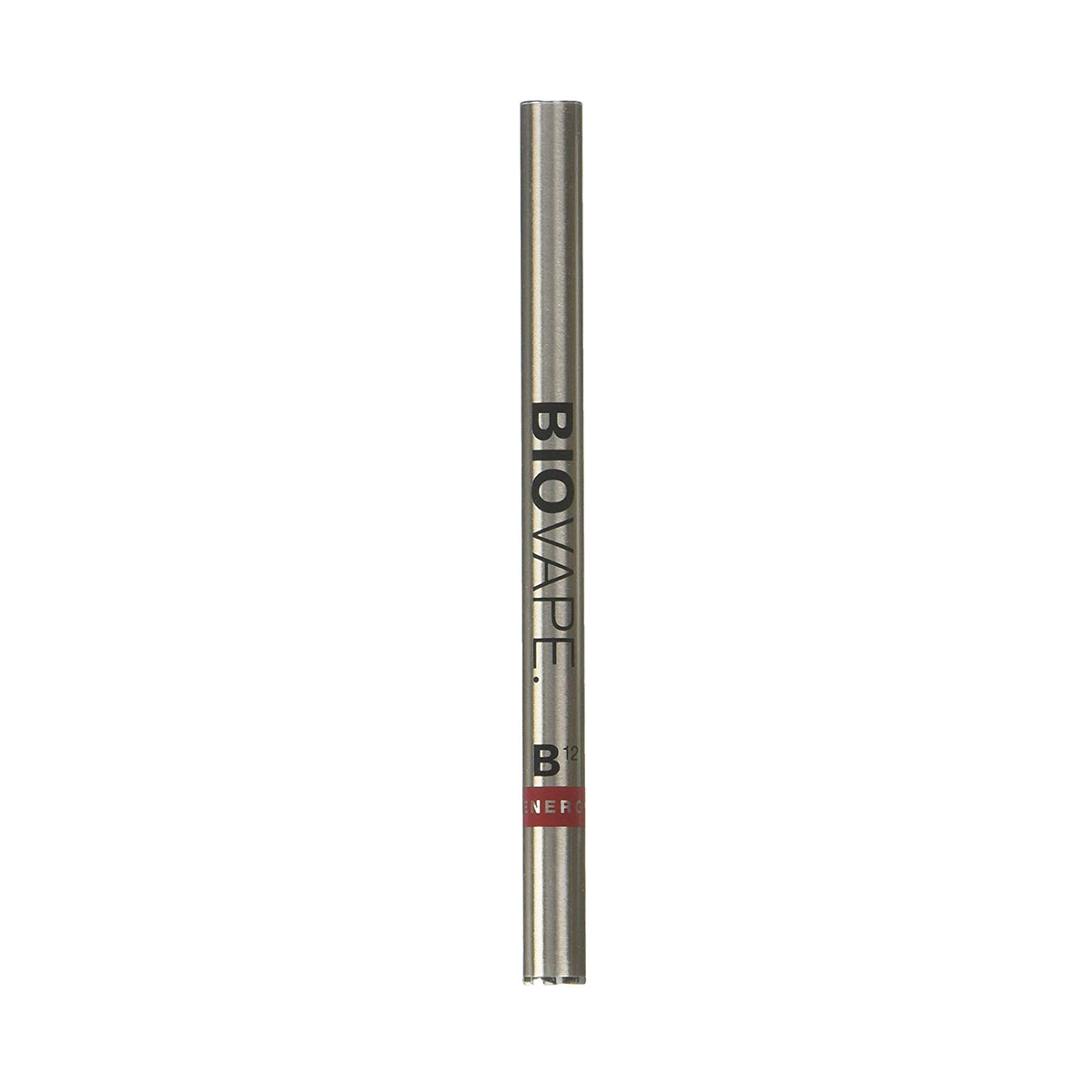I Tried a Vitamin Vape Pen—Because Yes, It's a Thing

As a longtime non-smoker, I have never been interested in vapes. While my lips are foreign to the touch of a cigarette (but are very familiar with the taste of cannabis), I would be lying if I said that I wasn’t slightly intrigued by the mechanics of these e-liquid products. A few months ago, I was practically buzzing while I scrolled through The Cut’s “As Told To” story about the rise (and fall) of the Juul and how teens in New York are very over it. Over the summer, The New Yorker published a piece about the device and its prominence in establishing vape culture as a real thing.
Needless to say, I was perplexed when a “vitamin vape” emerged on my screen while I was browsing in the wellness section of a retail store’s website. If parents, teachers, and administrators are worried about the youth getting their hands on Juuls, I could only imagine the conflict that will arise when they find out that their kids could be vaping vitamins.
Growing up, I was constantly told about how smoking is bad for you, but I couldn’t help but wonder if vitamins were a legitimate exception. As someone who struggles to stay on top of taking their vitamins in capsule form—I am also terrible at swallowing pills because of my extremely narrow throat—I thought that it might be worth hitting the vape. So I decided to try out products from LUU and BioVape. The first time that I inhaled the vitamins in my apartment, I didn’t really feel anything, so I proceeded to take a few more puffs.
It wasn’t until I went outside into the sunlight that I started to feel more wired than usual. Sure, I’d had some caffeine from a cup of matcha, but this sudden burst of energy was like nothing I’d ever felt before. Furthermore, I didn’t feel myself crashing as the day went on, which was a refreshing change. I also loved the idea of being able to inhale and exhale wherever I pleased, practically daring anyone to reprimand me for it so I could retort, “You’ve got it all wrong, darling. I’m taking my vitamins!”
Established in mid-2017, LUU is a company based in California that sells vitamin aromatherapy inhalers. Founders Corbin Brown and Joseph Gleizer are determined to offer a new aromatherapy experience to people seeking alternatives to smoking as well as those who are interested in the act of inhaling a “quality product” to relieve stress. For them, the goal is to provide a service that improves the mental and physical health of their customers. They believe that they are promoting “total wellness of mind and body,” according to their site.
“Health is becoming an increasingly pressing issue, so having access to healthy alternatives is an important factor in life,” they explained in an email. “We see this brand bringing a positive impact to its users by allowing them to get rid of negative externalities like anxiety and introducing the benefits of this ancient practice with a modern spin.”
Obviously, I’m too old for my parents to tell me what to do, but I did have some concerns about using these types of products despite the fact that all of the brands are spreading the gospel of wellness. After a week of alternating between the inhaler and vape, I was worried that I might become reliant on them and decided that it was probably in my best interest to stop. Besides, there was no way this could possibly be good for my lungs.
Robert Segal, MD, co-founder of Lab Finder, does not recommend vitamin vapes and would advise that people get their vitamin intake through food instead. “The first hazard is that not all vapes are created equal, meaning there may be some unknown chemicals in the vapes you buy in addition to tobacco and nicotine,” he said. “It’s catch marketing, but unfortunately, it may be just that.”
Almost all of the vitamin vapes and inhalers on the market are advertised as having a calming and relaxing effect on users, but Segal points out that “they could potentially reap the same relaxation benefits simply from taking 10 slow, deep inhales and exhales.”
Eric Presser, a thoracic surgeon, a member of First California Physician Partners (FCPP), and an associate professor with University of California, Riverside School of Medicine, was also not buying into the concept of a vape for vitamins.
“It’s all a marketing ploy since most vitamins are heat sensitive and the amount actually absorbed by the body is negligible, and when people talk about inhaling B12, they should understand that there is a protein produced by cells in the stomach that is necessary for absorption of B12,” he said. “To read that companies are promoting that vaping vitamins are safe and healthy is bothersome since every time you inhale heated vapor and the particles it contains, you create an inflammatory response within the airways which is detrimental to proper lung health. It leads to mucus production, cough, and disrupts the balance of our innate defense against illness and disease of the airway.”
As far as long-term effects are concerned, Presser mentions that added ingredients like propylene glycol and vegetable glycerin remain unknown at this time which can potentially be harmful. He adds, “I don't know about you, but being recognized as ‘generally safe’ by the CDC does not give me a warm and fuzzy feeling and certainly makes me speculative.”
Brown and Gleizer attest that the liquid formula for LUU C+ is non-harmful and safe for consumers because unlike most of the vitamin vapes on the market, they avoided using diethylene glycol (also known as formaldehyde) and opted for the infusion of vitamins to enhance the taste. They even warn people to proceed with caution as the popularity of vaping continues to rise.
“There are products within the vaping market that can be dangerous due to formulas made with dangerous chemicals,” they said. “We see our brand as the healthy alternative to what other vaping products can cause.”
Presser sees the benefit of switching to vapes as a method to quit smoking but believes that “a well-balanced diet gives us all the vitamins and minerals and antioxidants that we need.” In other words, we all might be better off sticking to the gummies—or dare I suggest consuming raw fruits and vegetables?
Next up: six myths you probably believe about millennials and mental health.
Disclaimer
This article is provided for informational purposes only and is not intended to be used in the place of advice of your physician or other medical professionals. You should always consult with your doctor or healthcare provider first with any health-related questions.



